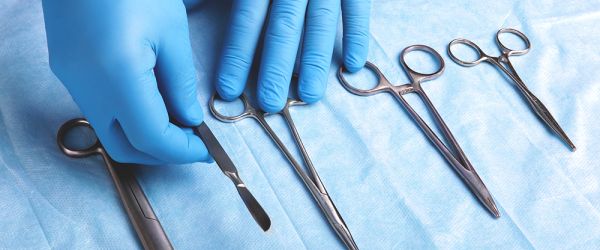Everything You Need to Know About a Surg Tech Career

Allied Health Professionals - Surgical Technologist
A career as a Surgical Technologist (Surg Tech) offers a unique opportunity to be on the frontlines of life-saving procedures while collaborating closely with nurses, surgeons, and anesthesiologists. In today’s rapidly evolving healthcare landscape, the role of a surgical technologist has expanded to include advanced technologies and updated safety protocols, making this career path more dynamic and in-demand than ever.
What Does a Surgical Technologist Do?
Surgical Technologists also known as Operating Room Technicians or Scrub Tech, are essential members of the surgical team. They perform a variety of tasks that ensure successful surgeries and positive patient outcomes. Whether you're looking to launch your career as a surgical technologist or explore opportunities as a traveling surgical technologist for advanced career growth, read on to learn more about the evolving role and benefits of this rewarding profession.
Preoperative Responsibilities
Modern Surg Techs are the first experts to prepare the operating room for a procedure. They now integrate digital tracking systems and smart inventory tools to enhance efficiency. Key preoperative tasks include:
- Sterilizing, Counting, and Arranging Surgical Instruments: Using updated sterilization techniques and real-time tracking software.
- Ensuring Availability of Supplies: Leveraging digital inventory tools to verify that all necessary materials are on hand.
- Setting Up the Operating Room: Preparing the operating table, lighting, and high-tech imaging devices according to the surgeon’s preferences.
- Patient Preparation: Assisting with patient positioning, applying advanced sterile drapes, and sometimes transporting patients using specialized equipment.
Intraoperative Responsibilities
During surgery, the modern Surg Tech plays a pivotal role in maintaining a sterile environment and supporting the surgical team through:
- Passing Sterile Instruments: Utilizing ergonomic designs and smart trays for enhanced efficiency.
- Retracting the Incision Site: Assisting with both manual and robotic-assisted surgeries.
- Handling Specimens for Lab Analysis: Coordinating with digital lab systems to ensure rapid and accurate analysis.
- Anticipating Team Needs: Using predictive protocols and communication tools to ensure no detail is overlooked.
- Troubleshooting Equipment: Managing and performing quick fixes on high-tech surgical equipment, ensuring the smooth running of procedures.
Postoperative Responsibilities
After the surgery is complete, Surg Techs continue to be vital by:
- Counting and Reorganizing Instruments: Using barcode scanning systems to maintain precise counts.
- Assisting with Suturing and Dressings: Applying the latest wound care techniques and materials.
- Transporting Patients to Recovery: Ensuring patient safety with updated monitoring and transfer protocols.
- Cleaning and Sterilizing the OR: Following enhanced infection control measures and using state-of-the-art cleaning technology.
- Restocking OR Materials: Keeping digital inventories updated to streamline future procedures.
What Certifications Do Surgical Technologists Need?
To launch a successful career as a surgical technologist today, you’ll need to complete a certificate, diploma, or associate degree from an accredited surgical technology program. Accredited programs are continually updated to incorporate the latest technology and practices in surgical care. Look for programs listed in the directories provided by the Accrediting Bureau of Health Education Schools (ABHES) and the Commission on Accreditation of Allied Health Education Programs (CAAHEP).
After graduation, certification is essential. Although certification requirements may vary by state, most healthcare facilities now prefer or require the Certified Surgical Technologist (CST) designation. For the latest exam preparation tools, visit the National Board of Surgical Technology and Surgical Assisting (NBSTSA) website. Additional certifications from the National Center for Competency Testing (NCCT) can further enhance your credentials.
Benefits of Being a Traveling Surgical Technologist
Nationwide staffing shortages and evolving healthcare demands have created an unprecedented need for allied health travelers, including surgical technologists. Becoming a traveling surgical technologist not only offers competitive salaries and excellent pay packages but also provides enriching professional and personal experiences:
- Competitive Compensation: Higher earning potential and comprehensive pay packages compared to permanent positions.
- Career Growth: Opportunities to work in leading healthcare facilities across the country, sharpening your skills and expanding your network.
- Personal Adventure: Enjoy the freedom to explore new cities, national parks, and diverse cultural experiences while advancing your career.
- High-Pay, Hassle-Free: With specialized contacts like FlexCare’s S1NGLEPOINT recruiters, you can secure high-paying assignments without the hassle of negotiation. Their commitment to offering the highest available compensation means you always get the best pay package for your skills.
Whether you’re just starting your journey or considering the next step as a traveling surgical technologist, now is the perfect time to join the field. With advanced technologies, updated certification standards, and unmatched career growth opportunities, a career as a Surg Tech is more dynamic and rewarding than ever before.